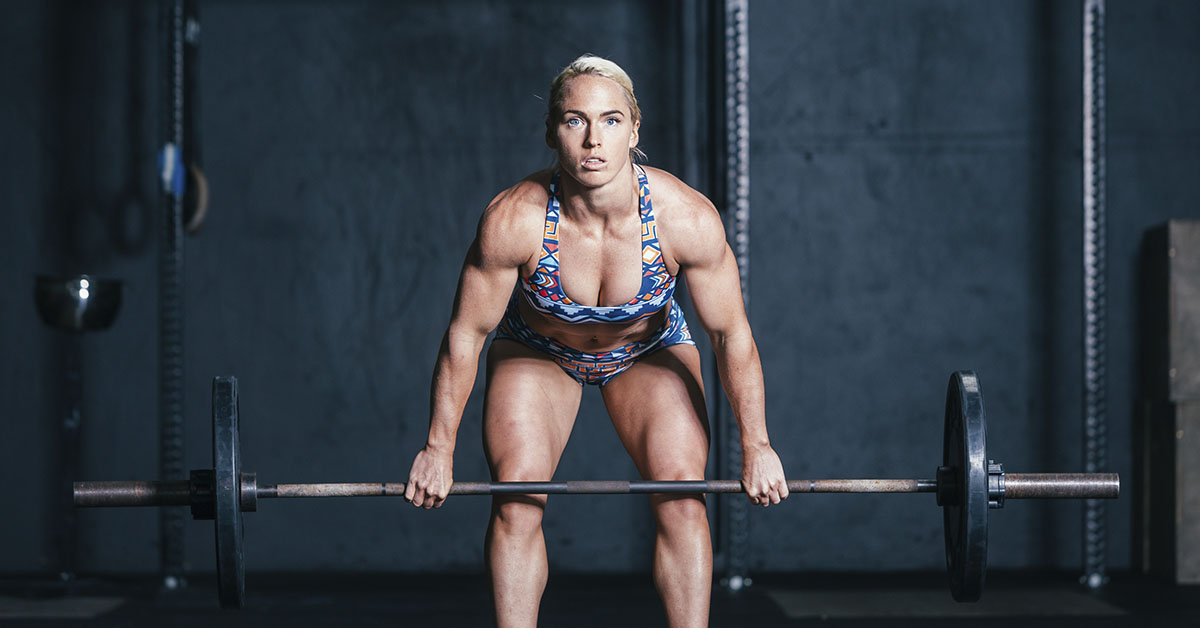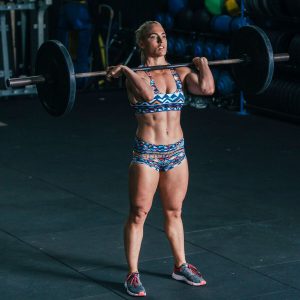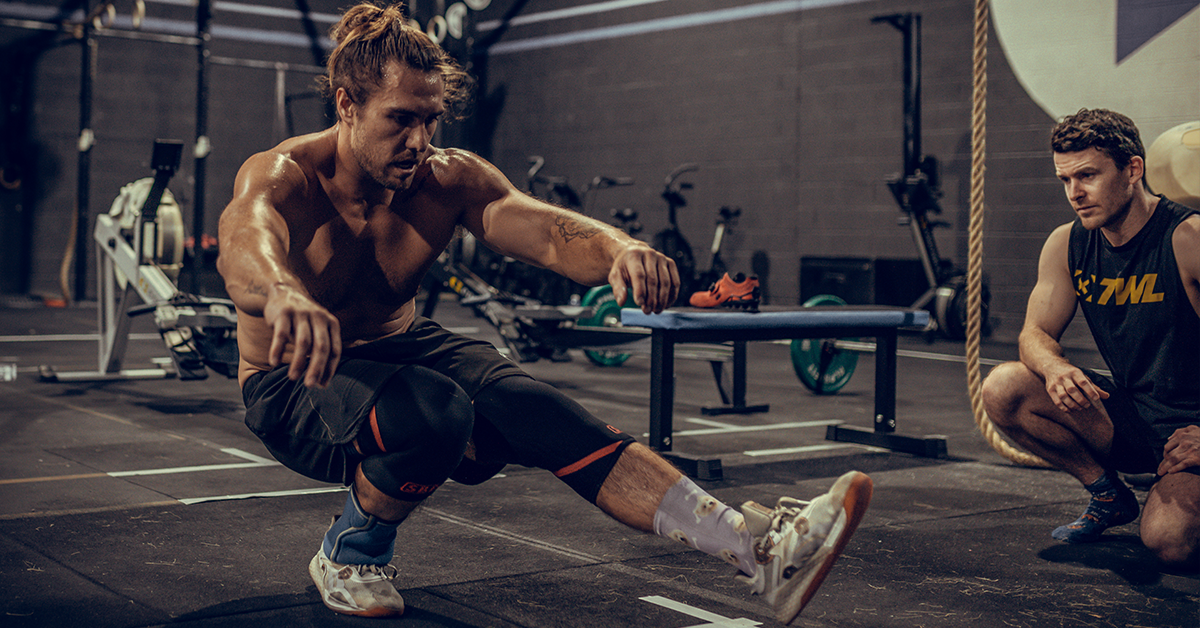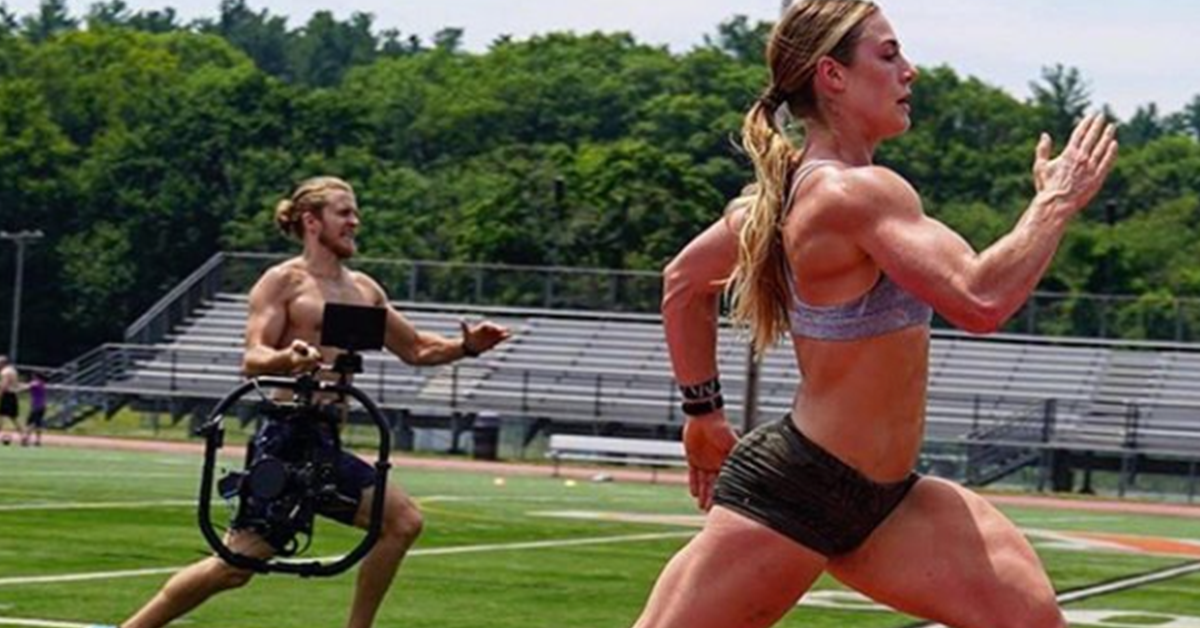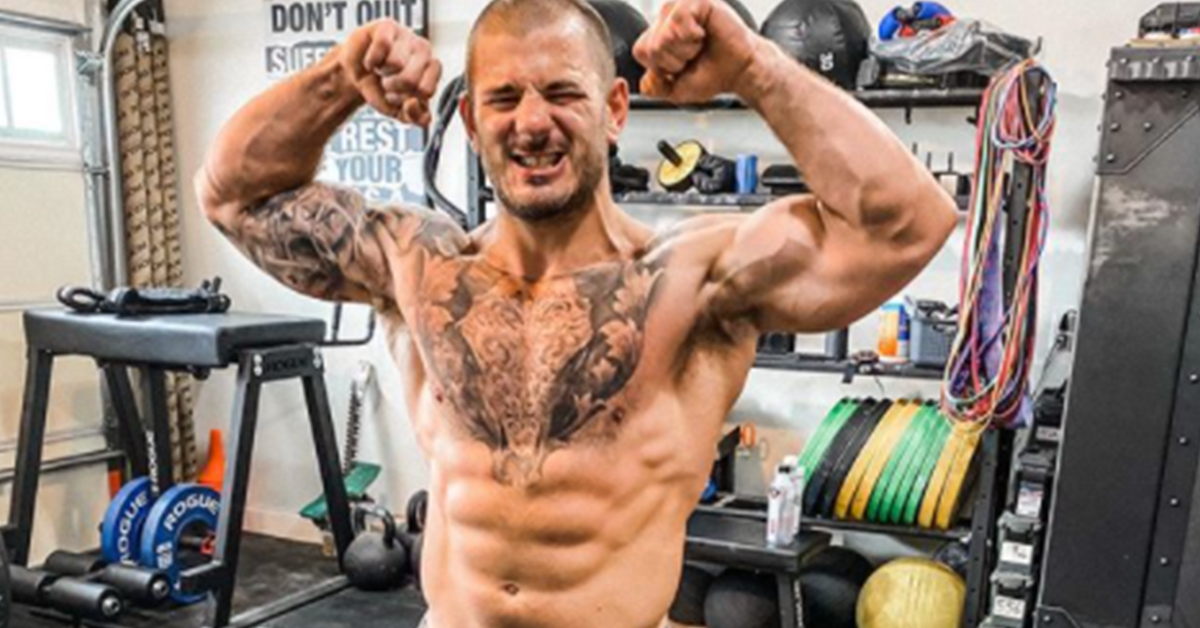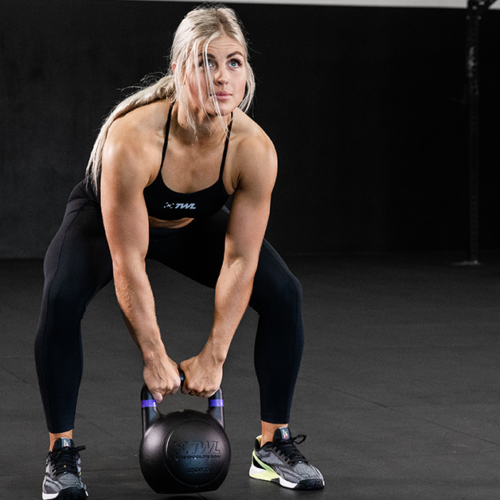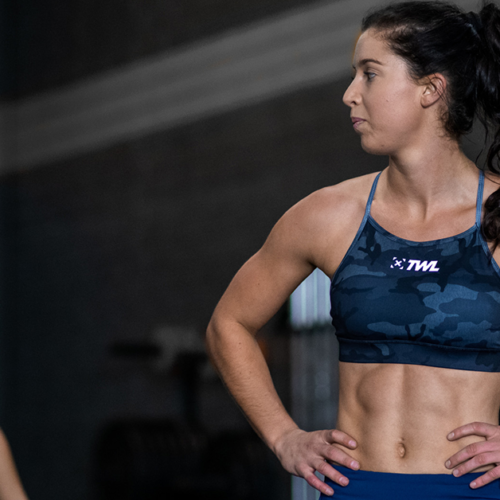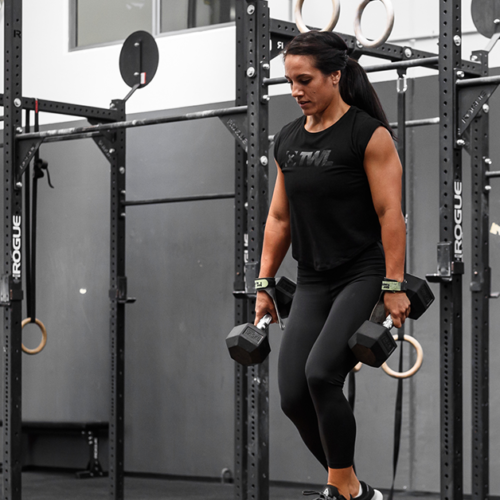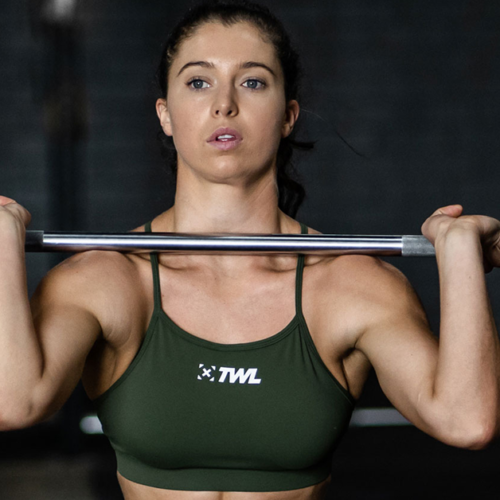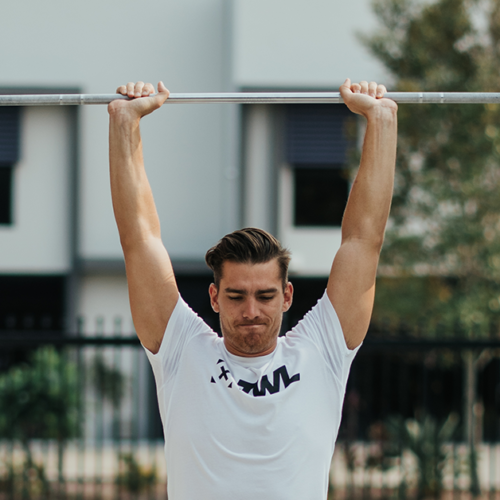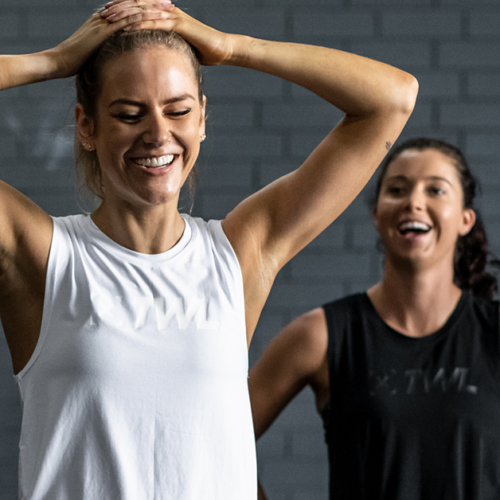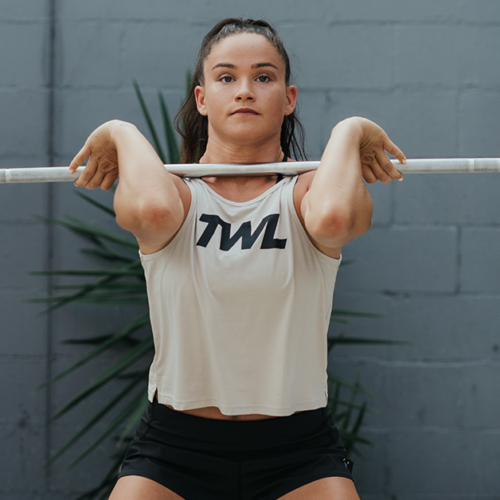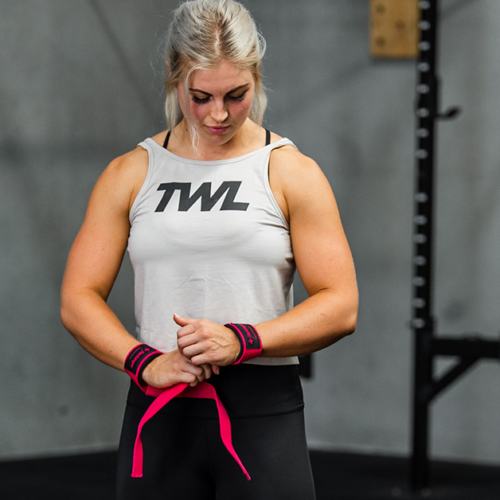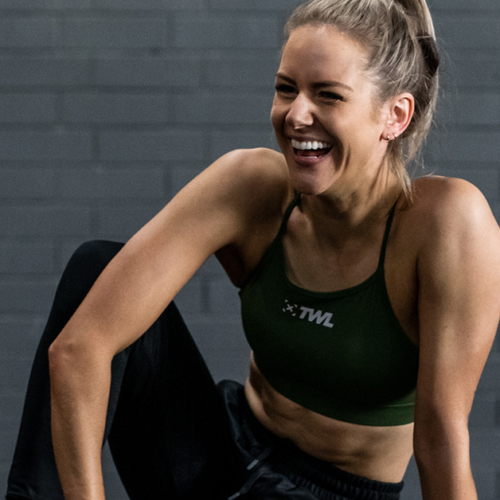Like most people who step into a CrossFit gym for the first time, Jess Coughlan didn’t think she was good enough to be a competitive CrossFit athlete. All of that changed after the 2011 CrossFit Games Open, in which she placed eighth in Australia. It wasn’t always an easy battle, but the former gymnast continued to challenge herself, both physically and mentally, in order to secure her spot at the CrossFit Games.
Her strategy was all about embracing fear, continuing to put herself in uncomfortable situations and being kind to her body.
How were you introduced to CrossFit and what keeps you training today?
I was introduced to CrossFit by a friend from my former gym. He took me through a few WODs and said I should come down to the local affiliate. I didn’t think I was good enough and tried to prepare for three months before finally taking the plunge—once there, I realized it was not something I could prepare for and you get better at CrossFit by training CrossFit.
Six years later, CrossFit isn’t a sport or an outlet, it is my life, social network and livelihood. I continue to train because I enjoy the feeling of conquering challenges and being physically prepared for all tasks.
What is the most important lesson CrossFit has taught you?
You are only as good as your weakest exercise. CrossFit is a truly humbling sport/program—it forces you to get comfortable with the uncomfortable—you cannot be a one-trick pony. However, overcoming challenges and weaknesses gives you unrivaled confidence and satisfaction.
When did you realize that competing in the CrossFit Games was your goal, and what did it take to get you there?
I completed in my first Open in 2011, came eighth in Australia and competed on my team at Regionals. However, it was 2012 that I realized what the Games were exactly and that I had the potential to qualify. There were a lot of great role models in the sport around that time who I had aspirations to become.
How does fear and being uncomfortable impact your training?
Fear plays a huge role in training, particularly for the CrossFit Games. Preparing yourself for the unknown and unknowable means becoming a well-rounded athlete and doing things you would love to avoid. Overcoming these fears and challenges, however, fills you with confidence and allows you to become a better person.
What has been the most drastic change you’ve made to your training that has had the largest impact?
This year, I have focused on my mental game and my recovery. I have set small personal challenges for myself to grow as a person and an athlete—filling me with increasing confidence. In terms of recovery, I have focused more on movement, nutrition and TLC for the body (pilates, physio, massage, float tank).
Where do you find your motivation when you’re having an off day?
I remember how much I have always loved to train, and the feelings of endorphins and satisfaction upon completing a session. Nothing beats that post-exercise high, and nothing is worse than a sense of regret.
If you had to choose gymnastics or weightlifting, which would you choose and why?
I would definitely choose gymnastics. Most of my early life was spent as a gymnast and I really enjoy performing skills such as muscle-ups, chest-to-bar pull-ups, toes-to-bar, etc. in workouts.
What are the pros and cons of your coach also being your partner?
My partner is my coach and my boss, so things are not always easy, but we still remain best friends. Having your partner as your coach means they know you, your body and your routine better than anyone else. They are willing to give a brutally honest assessment of how you are traveling, and genuinely want you to experience success.
However, it can be hard to separate the personal from the professional. Taking criticism can be hard—you have to remember it is criticism of you as an athlete not a person—when you hit the gym or leave the gym, fights have to be forgotten and you must assume the role of coach and athlete (I am still learning this).
How does training with other elite athletes propel you forward?
While I love training by myself, surrounding yourself with athletes who are better than you is the best way to assess yourself as an athlete and really show what you are capable of—it is also often a great lesson in being humble. Elite athletes also understand the stressors of the sport and can be a great sounding board for any struggles you might be having.
How have you been able to design your life around CrossFit?
I was previously a primary-school teacher, now I own two gyms and an online strength-and-conditioning programming service. The flexibility of these roles allows you to make training a priority and hang out with like-minded individuals. Who knows where I will be in five years time, but I’m happy with where I am at right now.
By Katie Ferraro

